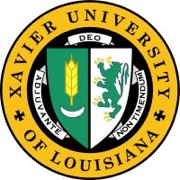Below is a summary of the abstract you submitted. Presenting author(s) is shown in bold.
If any changes need to be made, you can modify the abstract or change the authors.
You can also download a .docx version of this abstract.
If there are any problems, please email Dan at dar78@pitt.edu and he'll take care of them!
This abstract was last modified on May 29, 2024 at 8:59 p.m..

XULA’s mission is …’to contribute to the promotion of a more just and humane society by preparing its students to assume roles of leadership and service in a global society. This preparation takes place in a diverse learning and teaching environment that incorporates all relevant educational means’… The increasing prevalence of generative artificial intelligence (AI) is reshaping educational practices and outcomes across the world, and the mission implies that AI should be incorporated as an educational tool. It increases efficiency, but it also creates new challenges as it is generally accepted that AI detectors are not effective at detecting either human or AI generated text. AI is likewise useful for faculty in curriculum development. At the freshman level (BIOL1240), AI was used to assist in customizing newly adopted opensource textbook materials and increasing the diversity of homework and quiz questions tailored to specific learning objectives. This approach allows for the tailoring of content to fit our specific needs, and it fosters a deeper understanding of biological concepts by students through increased formative assessment opportunities. At the opposite end of the biology curriculum, students are often using AI as a tool in an online, writing-intensive, senior-level capstone course (BIOL4230). Student use of AI results in better submissions, allowing the students to focus more on the critical analysis skills necessary for evaluating primary scientific literature rather than grammar. To address this development, the course syllabus has been updated to include a dedicated lecture and assignments that guide students in the ethical and effective use of AI tools for scientific writing and critique. By requiring students to engage with AI in a controlled, reflective manner, the course aims to prepare them for a workforce where AI competence is increasingly valued. Furthermore, ethical considerations are emphasized, with guidelines on how AI should be utilized to enhance submissions without compromising academic integrity. This approach should enhance educational outcomes while preparing students to responsibly use AI in their future scientific and professional endeavors.
